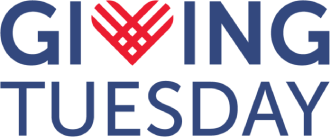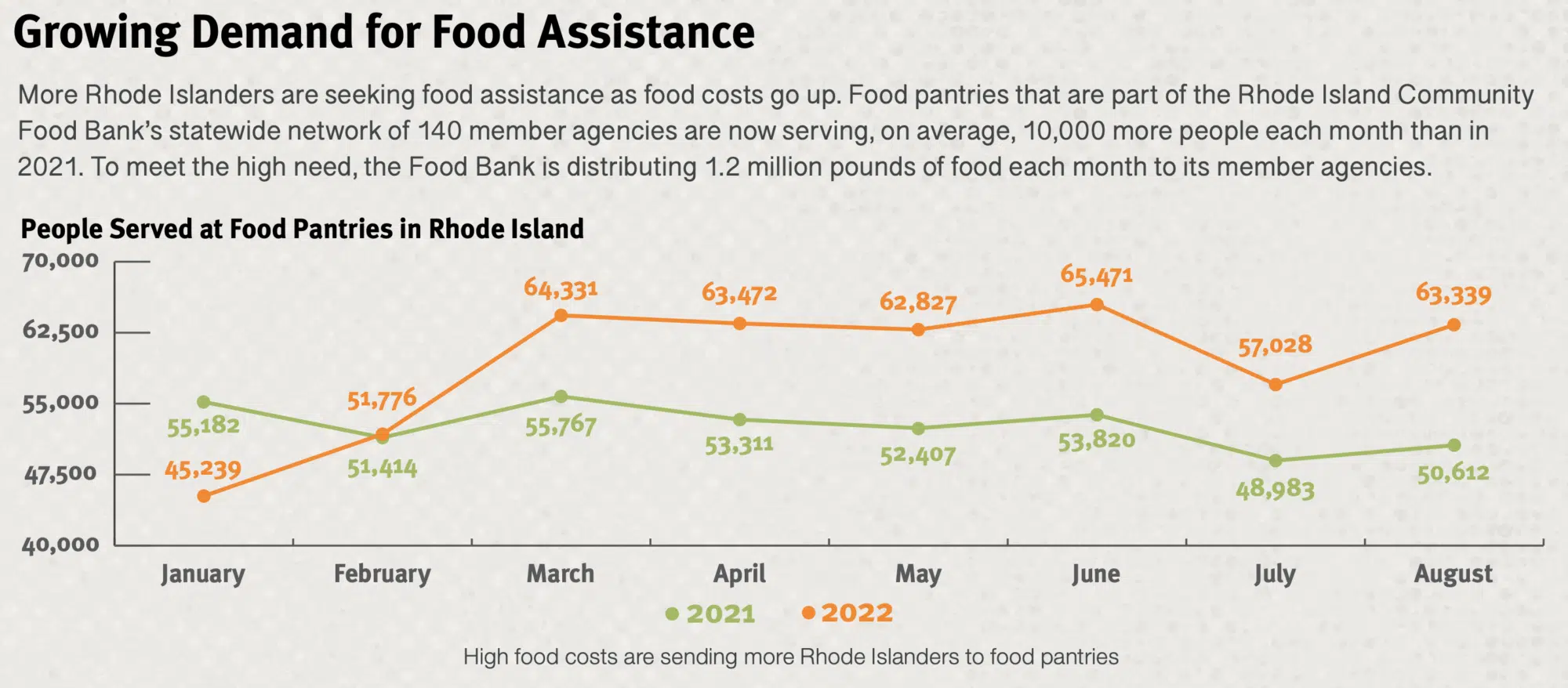Your help is greatly needed
“In this report we show that food prices in Rhode Island have gone up by 13 percent in just the past year,” said Andrew Schiff, CEO at the Rhode Island Community Food Bank. “Household incomes that once covered all the expenses and fed the family are now depleted by the 3rd week of the month – where there is no food left in the house and no money to purchase more. 31% of household in Rhode Island are in this situation…”
“For all households in Rhode Island, food insecurity is three
times what it was before the pandemic.”
Next Tuesday, November 29, is a good time to give to
the Food Bank or your local organization
With unemployment below four percent, the problem is that “for
many workers, their wages can’t keep up with the high cost of living,” said CEO
Schiff.
And as bad as these numbers are, the rate of food insecurity is
even higher among households of color – above 40%. “The pandemic worsened and
deepened longstanding racial and ethnic disparities in income, wealth and
economic opportunity,” said CEO Schiff.
The Rhode Island Community Food Bank has released their 2022 Status
Report on Hunger and sadly, food insecurity rates in Rhode
Island are worse than they were at the height of the pandemic. In short, food
is unaffordable for thousands of Rhode Islanders, and in particular, children
are suffering. Demand for food assistance has increased dramatically, even as
state leaders claim the economy is improving:
Data found in the report is gathered through the RI Life Index, which surveys a random sample of more than 2,000 households in the state. It is an initiative of Blue Cross & Blue Shield of Rhode Island and the Brown University School of Public Health. The report shows that food insecurity is now three times more prevalent than before the pandemic.
In fiscal year 2022, the Rhode Island Community Food Bank
distributed 15 million pounds of food through its 140 member agencies across
Rhode Island, which included 2.7 million pounds of fresh produce. Currently,
the Food Bank serves 63,000 people per month, an increase of 20% over the
previous year – a result of increased costs and the end of many Federal
pandemic benefits that kept many families afloat.
Major findings in the report include:
- Soaring food prices burden families still recovering from the effects of COVID-19.
- Nearly one in three Rhode Island households can’t afford adequate food.
- The risk of hunger is highest for low-income families with children and for communities of color.
- Demand for food assistance is increasing as critical COVID-19 relief programs and emergency benefits end.
From July 2021 to July 2022, food costs in Rhode Island went up
by 13%. Home heating oil costs are up by 43%. “We’ve heard guests say they’re
skipping meals to make sure their kids don’t have to,” said Denise Greene, executive
director at West End Community Center in Providence, one of the Food
Bank’s member agencies. “And their SNAP benefits are used up long before the
month is over.”
Rhode Island stands to lose $13 million a month in
emergency SNAP benefit funding once the public health emergency is
lifted. Benefits will go down significantly, triggering a crisis for the most
vulnerable in the state.
The Rhode Island Community Food Bank made the following recommendations:
- Thank legislators in the General Assembly who voted this year to enact the state Child Tax Credit, fund SNAP incentives, and boost funding for the Food Bank, but despite these efforts, there is much more the state can do.
- Urge Rhode Island’s Congressional Delegation to reinstate the expanded Child Tax Credit and increase SNAP benefit levels in the upcoming Farm Bill. Rhode Island stands to lose $13 million a month in emergency SNAP benefit funding once the public health emergency is lifted. Benefits will go down significantly, triggering a crisis for the most vulnerable in the state.
- Call on the Governor to use state funds to make school lunch and school breakfast free for all students. Massachusetts, Maine and Vermont have continued to pay for free lunch and breakfast after the federal mandate ended in September. Rhode Island needs to follow suit.
United States Senators Jack Reed and Sheldon Whitehouse attended
the press conference, and all attendees answered questions during
the last half.
The Rhode Island Community Food Bank distributes food to 63,000
struggling Rhode Islanders each month through a statewide network of 140 member
agencies including food pantries, meal sites, shelters, youth programs and
senior centers. Last year, the Food Bank distributed 15 million pounds of food,
of which approximately 2.7 million pounds was fresh produce. The Food Bank is a
member of Feeding America, the nation’s largest domestic hunger-relief
organization.

